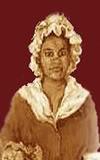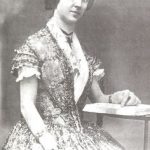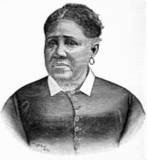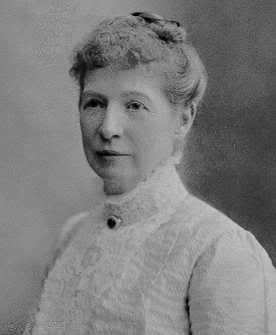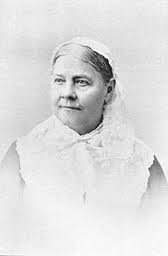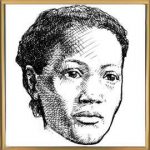African American Poet
The baby whose slavery name would become Lucy Terry was born in Africa around 1724. Slave traders sold her in Rhode Island – which dominated the colonial American slave trade – in about 1730. During the period when Lucy arrived, the rum-slave-molasses traffic from Newport or Bristol to Africa and the West Indies was in its early development.
Early Years
It is highly likely that Lucy was taken from Rhode Island to Enfield, Connecticut, which would explain why she was known as Lucy Terry. Since most blacks weren’t named until they were purchased and transported to their owners, Lucy probably came to be called Terry through an association with Samuel Terry, one of the early settlers and founders of Enfield.
It is uncertain how Lucy became the property of Deerfield, Massachusetts, resident Ebenezer Wells. Wells had purchased a house and barn on Deerfield’s principal street in 1717, and in 1720 married Abigail Barnard. He was prominent in town affairs, held various offices, and between 1747 and 1752 was licensed as “Innholder, taverner, and common victualler of strong liquor by retail.” By 1730, he was evidently well off, and owner of two slaves: Cesar, about whom little is known, and Lucy.
Wells had Lucy baptized in the Puritan church in Deerfield, and she became a member of the church when she reached the age of fourteen. Slaves were most frequently called servants, and appear to have enjoyed certain freedoms, among them at least a degree of free will in the matter of religion. No fewer than five slaves were baptized during the revival known as the Great Awakening.
It is not known how Lucy Terry became literate. Perhaps because Ebenezer and Abigail Wells were childless, the black girl who helped with the housework and did chores became more a member of the family than was normal in traditional mixed households.
Poetry
On August 25, 1746, when Lucy Terry was 22, two neighboring white families were killed in an Indian attack in a section of Deerfield that was called the Bars, a colonial term for meadows. She later wrote a thirty-line ballad about the attack called Bars Fight, which describes the violent incident between the settlers and Native Americans.
The Bars Fight
By Lucy Terry, 1746:
August, ’twas the twenty-fifth,
Seventeen hundred forty-six,
The Indians did in ambush lay,
Some very valiant men to slay.
‘ Twas nigh unto Sam Dickinson’s mill,
The Indians there five men did kill.
The names of whom I’ll not leave out,
Samuel Allen like a hero foute,
And though he was so brave and bold,
His face no more shall we behold.
Eleazer Hawks was killed outright,
Before he had time to fight,
Before he did the Indians see,
Was shot and killed immediately.
Oliver Amsden he was slain,
Which caused his friends much grief pain.
Simeon Amsden they found dead
Not many rods from Oliver’s head.
Adonijah Gillett, we do hear,
Did lose his life which was so dear,
John Sadler fled across the water,
And thus escaped the dreadful slaughter.
Eunice Allen see the Indians comeing
And hoped to save herself by running;
And had not her petticoats stopt her,
The awful creatures had not cotched her,
Nor tommyhawked her on the head,
And left her on the ground for dead.
Young Samuel Allen, Oh! lack-a-day!
Was taken and carried to Canada.
Lucy Terry Prince composed poetry that was recited or sung, as was common in colonial times. Because most of her works were not formally published, only the poem Bars Fight remains – a Deerfield resident, Harriet Hitchcock, recorded it from memory after Lucy Terry Prince’s death. It was printed in 1855 (Josiah Holland’s History of Western Massachusetts) for the first time.
Eileen Southern in The Music of Black Americans says, “An equally significant, though less dramatic, survival of Africanism is represented by the storytelling and singing of black women in New England who, in their own way, kept alive the African tradition.
Marriage and Children
Sometime about 1750, a new black presence made itself known in Deerfield. Abijah Prince must have captured the attention of Deerfield’s slave population because of his free status. Abijah, commonly known as Bijah, was a former servant to Reverend Benjamin Doolittle of nearby Northfield, Massachusetts. When Doolittle died he freed Bijah and gave him some land.
Lucy Terry remained with the Wells family until 1756, when she married Abijah Prince. He was about fifty years of age, and she some twenty years his junior Lucy then became a free woman, although it is not known whether her husband had to buy her freedom or if Wells freed her of his own accord. The couple set up housekeeping a little to the east of the village, on land owned by Ebenezer Wells.
By law Lucy and her children should have remained slaves, since the offspring of slaves followed in the condition of the mother. No one seems to know exactly how she managed it, but neither Lucy nor her children were ever slaves again. Bijah and Lucy had six children between 1757 and 1769, and each of them was baptized shortly after birth by Parson Jonathan Ashley. At least one of their sons, Cesar, is known to have fought in the Revolutionary War.
Lucy, who then called herself Luce Bijah, made her home a gathering place for slaves and freedmen of the community – a place where they could listen to tales and songs of old Africa. She was particularly popular with young people, who gathered around her kitchen at night to hear her recitations, music and poetry on the order of an adult literary circle. Luce and Bijah were the only known freed slaves in 18th century Deerfield.
Bijah Prince was industrious and carried accounts with several individuals and merchants of Deerfield. He was employed by Deerfield’s minister, Jonathan Ashley, cutting brush and wood, mowing, and sugaring between February 1756 and November 1759.
Bijah was never content to stay in one place for long. He seems to have had a hunger for land. One of his first large parcels was a 100-acre homestead in Guilford, Vermont, where the Prince family settled in 1764. The Princes moved back to Deerfield for a while, and eventually to Sunderland, Vermont.
Land Troubles
Around 1780, the Princes returned to their homestead in Guilford, but ran into trouble. Their neighbors, the Noyes, for reasons undetermined, burned Bijah’s fences and hayricks. The harassment continued until the Princes appealed to the Governor’s Council. The Princes were judged “much injured.” The Governor recommended to the Selectmen of Guilford to “take some effectual Measures to protect the said Abijah, Lucy, and family.”
Desiring a liberal education for one of her sons, Lucy applied at Williams College. Her son was rejected on account of his race. Lucy argued unsuccessfully before the trustees of Williams College for the admission of one of her sons, skillfully citing scripture and law “in an earnest and eloquent speech of three hours.”
Later, when a Colonel Eli Bronson attempted to steal land owned by the Princes, the case eventually made its way to the Supreme Court. Lucy argued against two of the leading lawyers in the state, one of whom later became chief justice of Vermont – and she won. Samuel Chase, the presiding justice of the Court, said that her argument was better than he’d heard from any Vermont lawyer.
Bijah and Lucy probably remained living on the Guilford property, and Bijah Prince died there in 1794, at the age of 88. Lucy remained in Guilford until about 1808, when she returned to Sunderland, Vermont, probably making her final home with her eldest son, Caesar, a farmer reported in the federal census for Sunderland in 1820 and 1830.
As long as she lived, Lucy Terry Prince made an annual pilgrimage over the Green Mountains “to see the old folks” at Guilford and to visit Bijah’s grave. Lucy was blind for several years previous to her death.
Lucy Terry Prince died at Sunderland, Vermont, on July 11, 1821, at ninety-seven years of age. The Vermont Gazette of Bennington published a long obituary, reprinted in part by The Franklin Herald of Greenfield, Massachusetts, and perhaps other newspapers.
Lucy Terry Prince, America’s first black poet, champion of justice, and loyal wife and mother, has partially emerged from obscurity. Although we now know more about her than most contemporary African Americans, Lucy still remains somewhat in the shadows and will doubtless always be the subject of myth and folklore.
SOURCES
Lucy Terry
Lucy Terry Prince
Lucy Terry Prince Composes Poem
Lucy Terry Prince: Singer of History
